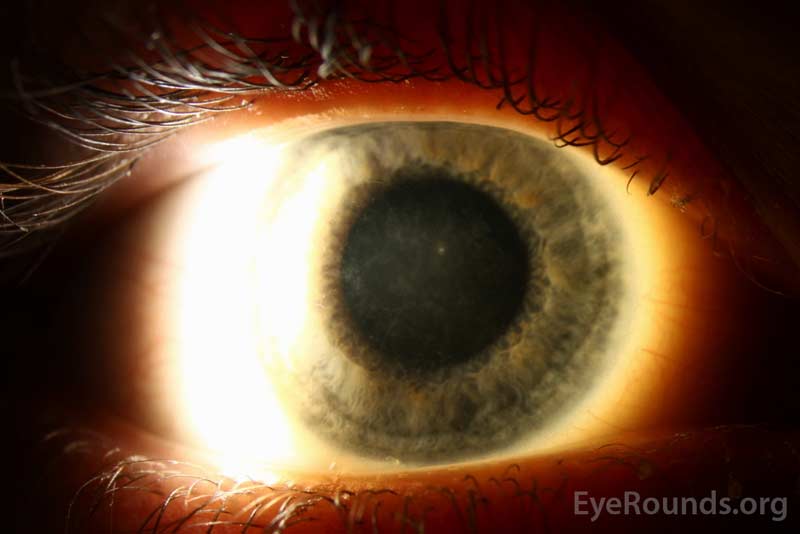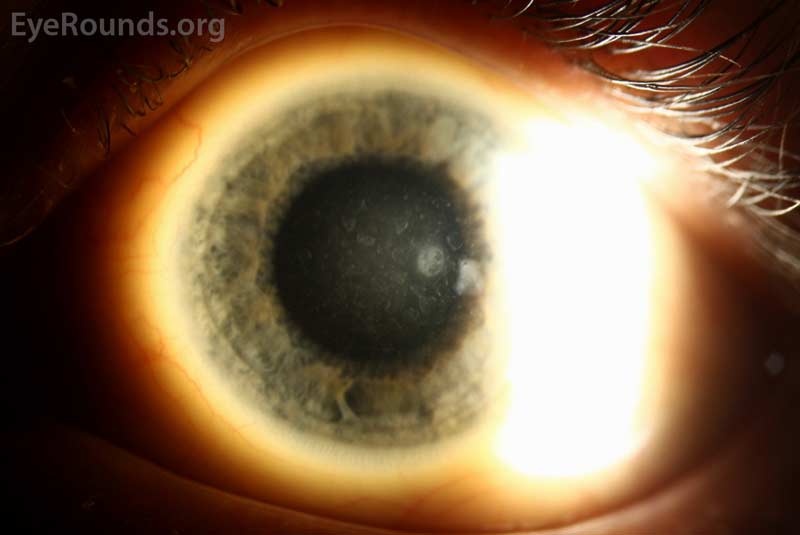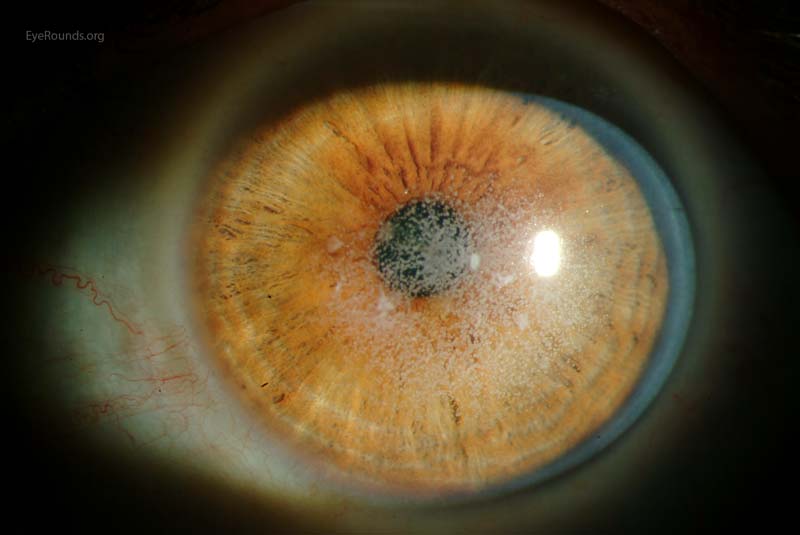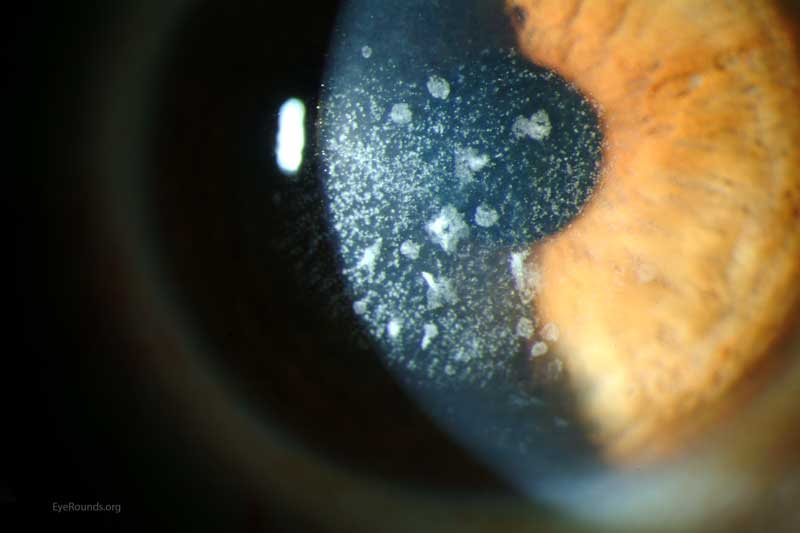Avellino Dystrophy
Contributor: Caroline W. Wilson, MD and Mark A. Greiner, MD
Photographer: Brice Critser, CRA
Category(ies): Cornea / External Eye Disease
Posted June 24, 2019
 |
 |
This 23-year-old female patient has granular type II (Avellino) corneal dystrophy and recurrent erosions. She has a strong family history of this autosomal dominant corneal dystrophy. In both eyes, there are linear lattice deposits and granular deposits in the central and paracentral anterior stroma with clear intervening stroma between the deposits. The right eye (top) has undergone phototherapeutic keratectomy and exhibits diffuse subepithelial haze. Treatment for her recurrent erosions included ocular surface lubrication with preservative-free artificial tears, sodium chloride 5% ointment, and rigid gas-permable contact lenses.
Avellino Dystrophy: Type II granular corneal dystrophy
Contributor: Matthew Ward, MD, The University of Iowa
Category: Cornea
Posted September 21, 2012
47-year-old man with type II granular corneal dystrophy (Avellino) manifested after undergoing LASIK vision correction. Avellino dystrophy is known to blossom after LASIK. For this reason, it is the practice in some Asian countries with high prevalence of Avellino (most prominently Korea where prevalence approaches 1/1000) to perform routine genetic testing to rule out the TGF beta 1 mutation in all candidates for laser vision correction. For more information on the anterior stromal corneal dystrophies see the following case: Epithelial-Stromal and Stromal Corneal Dystrophies
No one may use these photographs for financial gain without written authorization from the contributor.

Ophthalmic Atlas Images by EyeRounds.org, The University of Iowa are licensed under a Creative Commons Attribution-NonCommercial-NoDerivs 3.0 Unported License.




